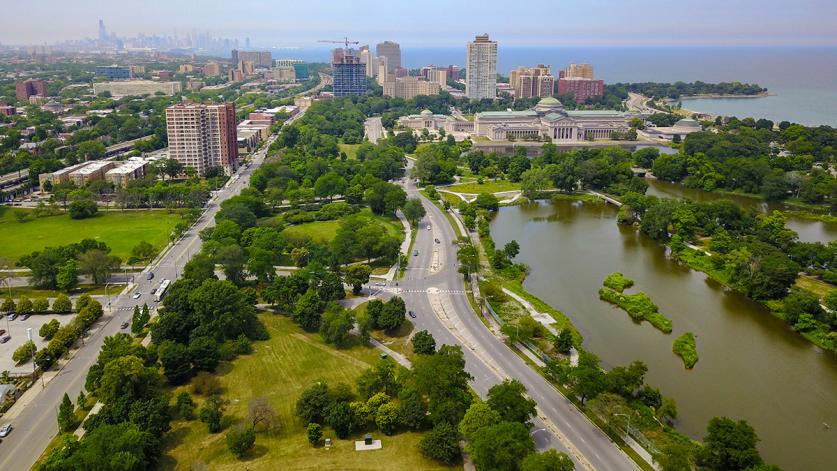What’s the Supreme Court's Newest Associate Justice's connection to the OPC?
Amy Coney Barrett, the Appellate Court judge recently confirmed by the U.S. Senate to replace the late Ruth Bader Ginsburg as an Associate Justice on the U.S. Supreme Court, wrote an August 21, 2020 decision concerning a lawsuit by Protect Our Parks (POP), a Chicago-based advocacy group, concerning the siting of the Obama Presidential Center (OPC) in historic Jackson Park. POP is challenging the legality of the City of Chicago’s transfer of public parkland to the OPC, which would be operated by the private Obama Foundation. According to POP’s Herb Caplan: “The principal argument is that there is actually a statute in the Park District code that says public parks property cannot be distributed to a private party for private use without providing substitute property of equal or greater value that will be used for outdoor public park purposes.” Caplan also noted: “We are all in favor of the Obama Center being developed in Chicago, but just not on park district land.”

Judge Barrett and two other judges on the U.S. 7th Circuit Court of Appeals ruled that POP did not have standing in federal court to pursue its objections. During oral arguments in May, attorneys for the City did not challenge POP standing; remarkably, it was Judge Barrett who introduced the issue into the debate. On September 4, 2020, POP filed an appeal for the case to be heard by the entire 7th Circuit Court of Appeals, and they have vowed to appeal all the way to the U.S. Supreme Court, if necessary. With Justice Barrett now confirmed to the Court, she would likely see this case again. Having already ruled once, would she have to recuse herself? We’ll have to wait and see.

Meanwhile, the federal level Section 106 reviews of the OPC, to which The Cultural Landscape Foundation (TCLF) is an official consulting party, grind on. A draft Memorandum of Agreement (MOA) was released outlining the efforts to mitigate the documented adverse effects of the OPC on Jackson Park. As TCLF noted in an August 10, 2020 letter with comments on the draft MOA:
It was our sincere belief, based on multiple decades of involvement as an official consulting party in many Section 106 compliance reviews, that there would be a good faith effort on the part of the Federal Highway Administration (FHWA) to appropriately manage the Section 106 process. It was also our sincere belief that there would be a good faith effort to develop one or more alternatives to avoid and/or minimize any adverse effects on Jackson Park.
Unfortunately, the Section 106 meetings, which aim to identify adverse effects and the methods to avoid, minimize and/or mitigate the adverse effects, were rather unwieldy gatherings that repeatedly strayed from the core mission of addressing the adverse effects while securing “public views and concerns about historic preservation issues when making final project decisions.” Managers of the Section 106 process repeatedly indulged participants who rendered commentary that was not germane.
There are many other venues and public processes through which OPC advocates could voice and have voiced their opinions. The Section 106 process is a rare instance where the resource, in this case Jackson Park, is afforded a statutory voice.
However, what remains deeply troubling is the abdication to consider any methods to avoid and/or minimize the adverse effects that have repeatedly been identified since the very first consulting party meeting on December 1, 2017. Section 106 requires that alternatives be developed to address adverse effects – this did not happen, which is a contravention of established law, policy, procedure and precedent. Instead FHWA declared that it and the federal regulatory process were helpless, impotent and powerless to address the “city action” that would enable construction of the OPC, despite established precedent to the contrary. The Section 106 managers in this case were complicit in the undermining of a process meant to safeguard the nation’s unique and historic built legacy.
TCLF notified the FHWA that it could not support the MOA in its current iteration, a position taken by other official consulting parties. Recent media reports indicate required signatories to the MOA are still negotiating details of the agreement, and that a resolution is likely sometime this fall. It is not expected that the language in the final MOA will radically depart from the language in the draft version, which makes the future of the POP lawsuit even more consequential.






